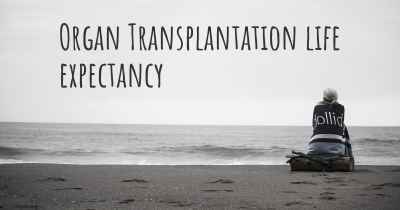Organ Transplantation diet. Is there a diet which improves the quality of life of people with Organ Transplantation?
Are you aware of a diet that can improve the quality of life of people with Organ Transplantation? Is there a diet that is suggested to avoid when having Organ Transplantation? See if there is a diet that can improve the quality of life of people with Organ Transplantation, recommended and to avoid food when having Organ Transplantation

Improving Quality of Life through Diet after Organ Transplantation
After undergoing organ transplantation, maintaining a healthy diet is crucial to support the success of the procedure and enhance the overall quality of life. A well-balanced diet can help prevent complications, promote healing, and support the immune system. While there is no specific diet exclusively for organ transplant recipients, certain dietary guidelines can be followed to optimize health and well-being.
1. Focus on Nutrient-Rich Foods
Emphasize consuming a variety of nutrient-rich foods to provide essential vitamins, minerals, and antioxidants. Include a wide range of fruits, vegetables, whole grains, lean proteins, and healthy fats in your diet. These foods can help boost your immune system, reduce inflammation, and support overall organ function.
2. Adequate Protein Intake
Protein is essential for tissue repair and healing, making it particularly important for organ transplant recipients. Include lean sources of protein such as poultry, fish, beans, lentils, tofu, and low-fat dairy products in your meals. Consult with a healthcare professional to determine the appropriate protein intake for your specific needs.
3. Limit Sodium and Fluid Intake
Controlling sodium and fluid intake is crucial, especially for individuals with kidney transplants. Excessive sodium can lead to high blood pressure and fluid retention, which can strain the transplanted organ. Be mindful of processed foods, canned goods, and fast food, as they often contain high levels of sodium. Additionally, follow your healthcare provider's recommendations regarding fluid intake to maintain a healthy balance.
4. Stay Hydrated
While fluid intake may be restricted, it is important to stay hydrated to support overall health. Opt for water as the primary source of hydration and limit the consumption of sugary beverages. Adequate hydration helps maintain proper organ function, aids digestion, and promotes overall well-being.
5. Practice Food Safety
Organ transplant recipients are more susceptible to infections, so it is crucial to practice food safety measures. Wash fruits and vegetables thoroughly, cook foods to appropriate temperatures, and avoid consuming raw or undercooked meats, seafood, and eggs. Additionally, follow proper hygiene practices while handling and preparing food to minimize the risk of foodborne illnesses.
6. Consider Vitamin and Mineral Supplements
In some cases, organ transplant recipients may require vitamin and mineral supplements to meet their nutritional needs. Blood tests can help identify any deficiencies, and your healthcare provider can recommend appropriate supplements if necessary. However, it is important to consult with your healthcare team before starting any new supplements.
7. Individualized Approach
Every organ transplant recipient is unique, and dietary needs may vary. It is crucial to work closely with your healthcare team, including a registered dietitian, to develop an individualized approach to your diet. They can provide personalized recommendations based on your specific organ transplant, medications, and overall health status.
Remember, maintaining a healthy diet is just one aspect of post-transplant care. It is essential to follow all medical recommendations, take prescribed medications as directed, and attend regular check-ups to ensure the best possible outcomes.
Posted Jan 19, 2019 by PK 3000








